
A fresh pile of seed packets makes gardeners yearn to get growing. But hold tight! If you start too early, you might end up with leggy, overgrown plants that need babying until the frost disappears and the soil warms. Start too late, and you'll be drooling over your neighbor's BLTs while forlornly waiting for your plants' blooms to turn into fruit. Here's how to ensure your schedule is set up for success.
1 DECIDE WHAT TO GROW
Before you sow your first seed, become familiar with that plant's needs. Does it prefer warm temperatures, or can it tolerate a light frost? Knowing the appropriate growing season and temperature, as well as the light and soil requirements, helps you set a schedule.
Many plants, such as peppers, tomatoes and some perennial flowers, need warm temperatures to germinate, making them good candidates for indoor seed starting.
2 CONSIDER ALL SEASONS
While summer offers a rich bounty, spring and fall gardens offer equally extensive harvests of cool-season crops, such as broccoli and lettuce. And cool-season flowers, such as pansies and snapdragons, fill gardens with color and fragrance, so consider them when setting your list.
3 ORDER SEEDS EARLY
Shop early for the best selection and to receive seeds in time to give them a great start. Most seed packets offer excellent information, such as days to germination, ideal temperature, how deep to plant the seeds, days to maturity, plant spacing, sun needs and more. Knowing how long seeds take to germinate and mature helps you know when is the best time to start them inside.
この記事は Birds & Blooms の February/March 2024 版に掲載されています。
7 日間の Magzter GOLD 無料トライアルを開始して、何千もの厳選されたプレミアム ストーリー、9,000 以上の雑誌や新聞にアクセスしてください。
すでに購読者です ? サインイン
この記事は Birds & Blooms の February/March 2024 版に掲載されています。
7 日間の Magzter GOLD 無料トライアルを開始して、何千もの厳選されたプレミアム ストーリー、9,000 以上の雑誌や新聞にアクセスしてください。
すでに購読者です? サインイン
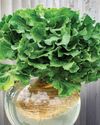
Basics of Hydroponics
Use these top tips and plant picks to have a successful soil-free garden
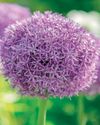
Rooted in Resilience
These hardy perennials will thrive in most zones
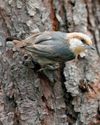
Social and Supportive
Brown-headed nuthatches take a helpful approach to raising their young

All About Owl Pellets
And why you should give a hoot about them
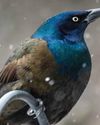
Ask the Experts
Advice from our pros about houseplants, bird feeding and more
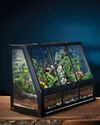
BRING THE OUTDOORS IN
Making a terrarium is about as close as you can get to a Zen DIY project. Once you have gathered the proper materials and squared away your plant selections, it's as simple as layering it all together and watching your mini ecosystem thrive. Here, I'll walk you through my foolproof process and cover all the required elements for good filtration, healthy soil, strong root growth and resistance against fungus and disease.

GROW THIS. NOT THAT
Six easy-to-grow houseplants—and six that may not be the right choice for you

Winter MAGIC
Forecasts may be frigid, but grab your binoculars because birding opportunities are still incredible
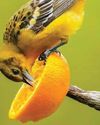
Sense or Nonsense? - Why some birds can taste and smell - but others can't
Does a porcelain berry taste like a blueberry to a gray catbird? Does a block of lard smell like frying bacon to a northern flicker? The short answer is no. While some avian species do have a well-adapted sense of taste or smell, they can't distinguish between flavors and odors the way humans can. They're not picking up every ingredient in the suet you put out, says José Ramírez-Garofalo, an ornithology researcher at Rutgers University in New Jersey and the director of Freshkills Biological Station in Staten Island, New York.

Maple Mania - Amazing facts about this fall foliage mainstay
Amazing facts about this fall foliage mainstay